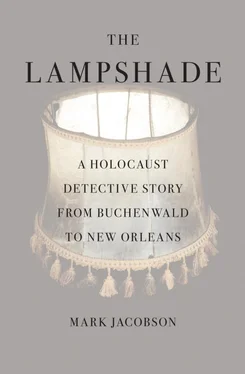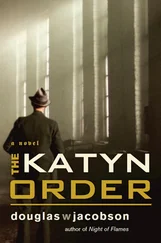“Those guys were always pulling me over. The same cop stopped me seventeen times. Since the cemetery bandit thing I’m like Brad Pitt to them. So they’re giving me the star treatment, in between a little knee in the stomach. One of them pats me down, then he reaches into the pocket. ‘Look what Mr. Dominici has, fellas,’ he yells.
“The cop has this little white pellet in his hands, the size of half a raisin. They’re saying it is crack cocaine. I told them it wasn’t mine, that I don’t use crack. They’re saying, ‘Oh, yeah, then how did it wind up in your pocket?’ Well, I couldn’t tell them that I just boosted the pants, could I? Is that some kind of fucked-up luck or what?”
Telling the story got Dominici riled up about it again. “I paid my debt to society. All I want to do is live my life as a normal citizen, get my credit straight, fix up my house. And they’re harassing me, popping me for this stupid shit. Look at the way they filled out the arrest report.”
Dominici handed me the report, pointing to a series of little boxes in the middle of the page where the arresting officer is asked to indicate various characteristics describing the suspect. In the category labeled “Race,” the box indicating “black” was checked. Under “Teeth,” someone had ticked the “gold” box.
“They think I’m a black guy with gold teeth!” Dominici thundered. “What kind of crap is that? It’s bullshit!”
I had to agree. At best, this was some very sloppy paperwork on the part of the NOPD. “Dave,” I said, “you’re a white guy with hardly any teeth. They can’t get away with that. You’re going to beat this case.”
“You think so?” Dominici answered. “That’s great.”
The New Orleans courts being as they are, it took several months before Dominici’s case appeared on the calendar. During this period a number of things had happened. Dominici and Gaynielle Dupree broke up and got back together at least two times. Plus he received a check from the State of Louisiana Road Home program, giving him a tidy settlement for the damage Katrina had done to his house.
“I didn’t want that Check For Zero,” Dominici said of the payment, referring to the dread “Check For Zero” that many homeowners had received from the state. The Check For Zero came in a windowed envelope, with the “Pay to the order of” part visible, leading many desperate residents to think that finally their relief money had arrived and they might begin to rebuild their lives. Yet upon opening the envelope, the embattled homeowner would find a State of Louisiana check for $000,000.
“I thought it was one of those,” Dominici recounted. “But then I saw that little number one in there and I was proud to be an American.” One of the best things about it, Dave said, was that the check came on his birthday. “How great was that? Gaynielle got me a card that played the theme song from Law & Order .”
Perhaps it was this long break since the original arrest that made Dominici forget that his court date was coming up soon. It was this oversight that, he told me, caused him to get high with some friends even though there was a near certainty that his appearance would include a drug test. Caught off guard, Dominici became enraged by the whole process and, in the company of a number of court officers, declared that there was nothing Orleans Parish, or any other law enforcement agency, could do to him.
“You can’t do anything to me,” the wide-eyed Dominici reportedly declared. “You can’t do anything to me because I’m the one who found the Nazi lampshade. I’m the one who found the Nazi lampshade and the New York Times is coming down here to make a movie of my life. So screw you.” Apparently Dominici made this assertion a number of times.
It was then, Dani Dominici Babineaux said, that the authorities began thinking of giving her brother a Lunacy Hearing.
A few weeks later I visited Dave Dominici at the OPP and asked him if he really made those statements concerning the lampshade in the presence of Orleans Parish officials. Sitting on the other side of a two-inch-thick piece of Plexiglas and talking into an old-style black telephone receiver, Dominici gave a sheepish look and said, “Perhaps.”
Dominici takes pride as someone who “jails well.” In Angola, he recalls, “they had me pulling out these huge eight-foot-around tree stumps with a tiny little shovel. You had a partner with you, digging all day long. When you finally get the stump out, you have to fill in the giant twelve-foot-deep holes. Ten hours a day, pulling stumps. That’s Angola. You could tell the place used to be a slave plantation, you can just smell it.”
The OPP was another kind of clink. Before the storm, there had been as many as sixty-five hundred prisoners (90 percent of them African-American) locked up in the place, which made it the ninth- largest jail in the country. It was a massive operation, a multistructure complex with an annual budget of $75 million, employing twelve hundred people including the kitchen workers who served eighteen thousand meals a day. With the city paying the sheriff’s office $22.39 per day per prisoner, jailing people in New Orleans was a lucrative business.
Katrina put a serious crimp in the OPP operation. With several of the complexes severely damaged, many prisoners were transferred to other facilities around the state. By the time Dave Dominici got to the OPP psych ward, the place felt all but deserted, with most of the inmates consolidated within the decrepit House of Detention (the sign outside says, simply, House of D) with its skeleton crew of guards and a lone metal detector.
Being cooped up on the tenth floor was giving Dave Dominici the creeps. The problem was more than just the usual mumblers, starers, and guys who’d rip out your lungs if they got half a chance. Every prison had those people. Even the suicide rate, one of the highest in the country, didn’t faze Dominici. Nor did the fact that many OPP prisoners had been in the facility for months without seeing a lawyer or even knowing the precise charges against them.
What was driving Dominici around the bend was the ghosts. It sounded pathetic, Dominici said, the illustrious cemetery bandit being freaked out by ghosts. But these weren’t the tourist poltergeists that Quarter barkers hustled on “haunted New Orleans” tours. They weren’t the dead-and-buried ones, fifty years stone-cold in a Lake Lawn mausoleum. These ghosts were fresh and desperate, searching and hungry, screeching in pain.
Dominici knew “bits and pieces” of how bad it had been in the OPP during Katrina, but it wasn’t until he got locked up that he heard “the whole bad thing.” It was a nightmare to be sure: with everyone in the city running for their lives, many of the prisoners were left in their cells, without food or drinking water. First thing, the power went out, followed by the emergency generators, so you had thousands of men, the usual hair-raising array of OPP offenders, many of them still handcuffed, sealed into the fetid pitch dark by jailers who’d deserted their posts. And all the while the floodwaters were rising, to as much as eight and nine feet on the lower floors. There were awful, awful stories, tales of prisoners who tried to swim through the waters to safety, only to get ripped to shreds by the submerged razor coil wire.
The city fathers, from Ray Nagin on down, were denying the whole thing. Sheriff Marlin Gusman, Nagin’s close associate, who had never run a prison before taking over the OPP, told the press that stories about what had happened at the OPP were the fantasies of “crackheads, cowards, criminals… and disgruntled former employees.” But no one believed that, certainly not Dave Dominici. He was from New Orleans, he was a convicted felon, and as such he was of the opinion that nothing any local official ever said in a time of stress could possibly be true, especially when it came to what happened in the jails. People had died at the OPP, Dominici had heard. They had died horribly, either drowned or stomped, or by heart attack, which didn’t make it any less a murder. Since he’d been checked into the psych ward, that’s all he’d heard about, the madness of those days, the way the fleeing deputies had sprayed the wards with machine gun fire to push the prisoners back into their cells.
Читать дальше












